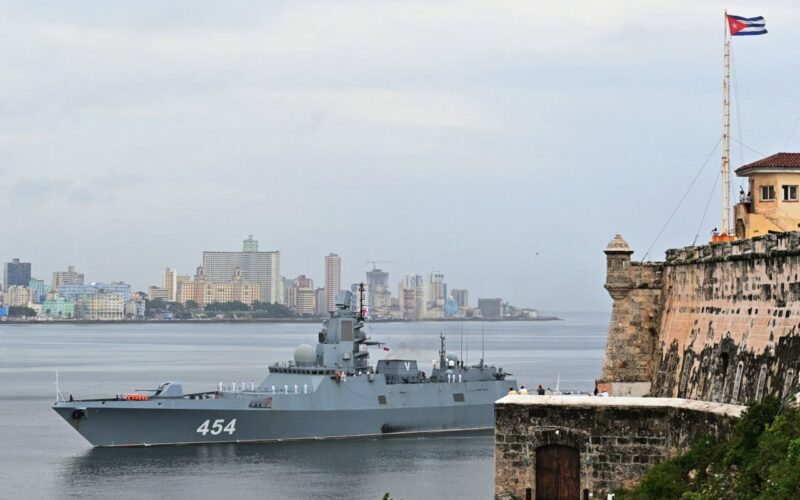The Kremlin assured on Thursday that the presence of Russian warships in Cuban waters should not be a cause for alarm for any nation, including the United States. This statement follows the arrival of a Russian navy frigate and a nuclear-powered submarine in Havana harbor on Wednesday, a maneuver seen by some as a demonstration of Russian naval capabilities amid rising tensions over the conflict in Ukraine.
The Admiral Gorshkov frigate and the Kazan nuclear-powered submarine arrived in Havana after conducting missile training exercises in the Atlantic Ocean. These ships are part of routine maritime operations, according to Russian officials.
Dmitry Peskov, Kremlin spokesman, emphasized that such naval exercises are standard for maritime powers and posed no threat. “This is a normal practice for all states, including such a large maritime power as Russia,” Peskov stated. He dismissed any cause for concern, highlighting that these activities are part of regular military exercises.
Cuba’s foreign ministry and U.S. officials both confirmed that the vessels did not carry nuclear weapons, alleviating concerns about any potential nuclear threat.
White House National Security Adviser Jake Sullivan noted that there was no evidence suggesting Russia had transferred missiles to Cuba. Nonetheless, he indicated that the U.S. would remain watchful of Russian activities in the region.
While Sullivan acknowledged the lack of an immediate threat, the U.S. continues to monitor the situation closely, reflecting ongoing vigilance amid heightened geopolitical tensions.
The deployment of Russian warships to Cuba comes amid strained relations between Russia and Western nations over the conflict in Ukraine. This move is perceived by some analysts as Russia demonstrating its military reach and influence in the Western Hemisphere.
The presence of Russian military vessels in Cuba evokes historical parallels with the Cold War era, although current officials from both Russia and the U.S. downplay any significant escalation.
The Kremlin’s reassurances about the Russian naval presence in Cuba reflect an effort to mitigate fears of a potential escalation in the region. Both Russian and U.S. officials have emphasized that the ships do not pose a nuclear threat, and the exercises are part of regular maritime operations. As international attention remains focused on the Ukraine conflict, these developments underscore the complexity of global military posturing and the ongoing need for diplomatic vigilance.








